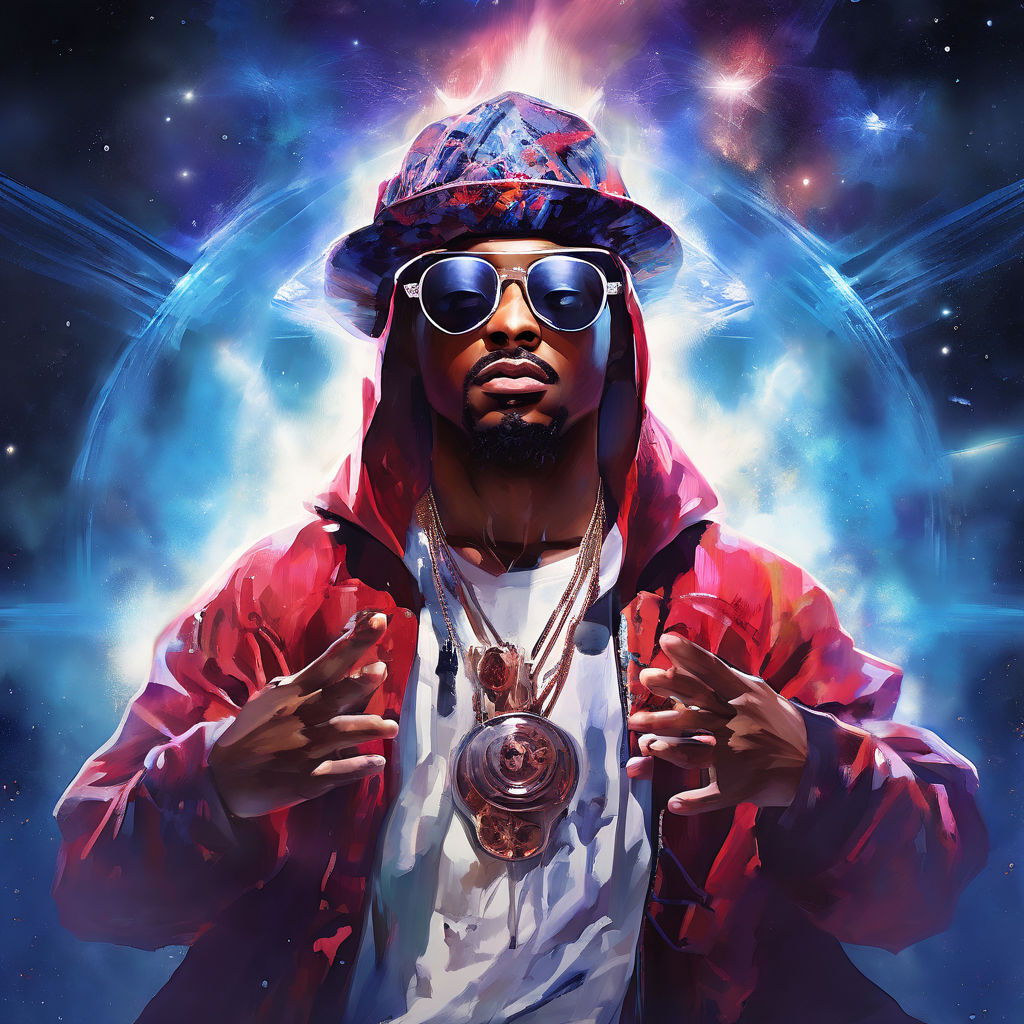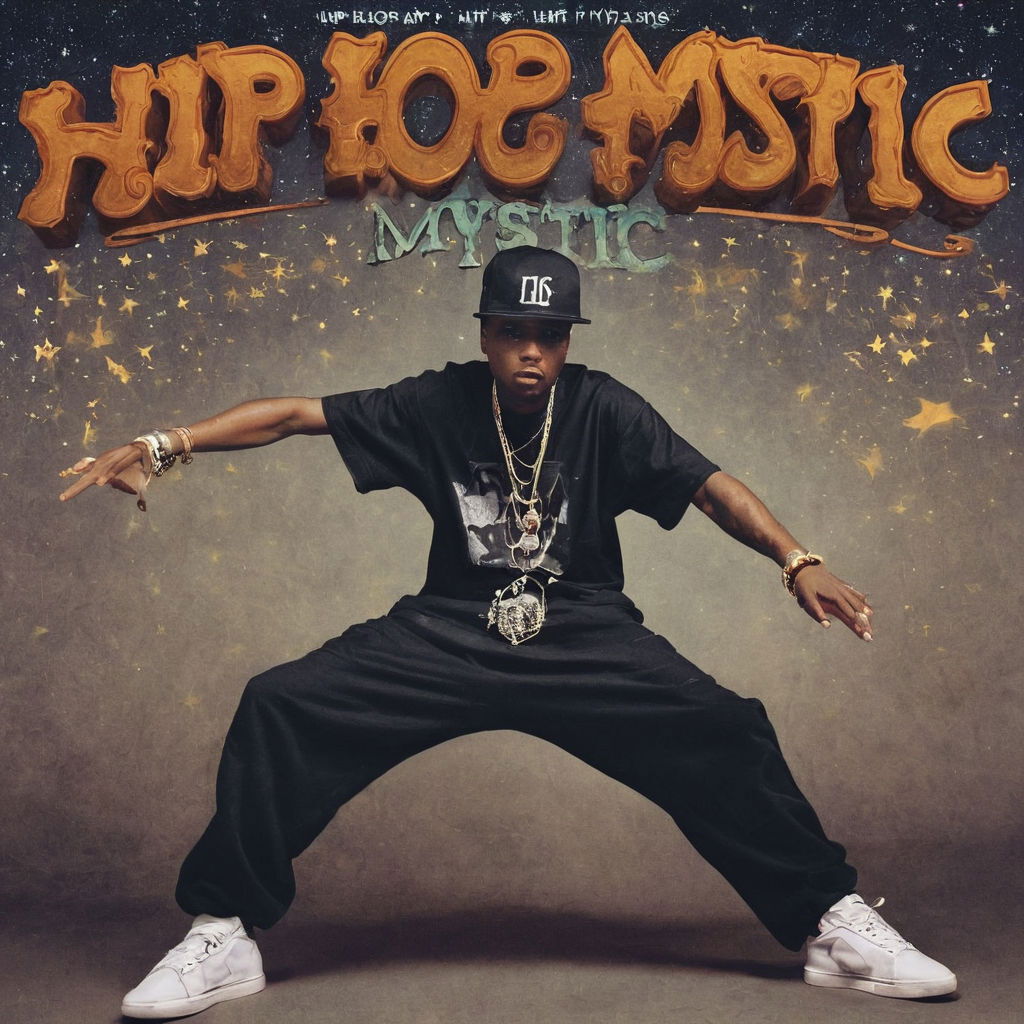Mack Tales The Mystic : THE NEW GOD MC
Prologue:
In the vivid heart of Compton's sunlit streets, 19-year-old Mack Tales navigates the gritty alleys that have born the weight of hip hop legends. With Beats headphones pressed over his ears, the dense lyrics of past rap gods fill the air around him, a personal soundtrack to his every step through this infamous Los Angeles neighborhood. It’s a clear day, the kind of day that seems made for revelation and introspection.
Mack’s life, at present, revolves singularly around the pulsating beat of the Los Angeles hip hop scene, particularly the West Coast style that has dominated the genre since its inception in the 1970s. His knowledge runs deep, tracing back to the early days when pioneers like Alonzo Williams, a Compton native and budding DJ known as ‘Disco Construction’, began spinning records at local parties, setting the stage for a musical revolution.
The year is 2018, and Compton's contribution to hip hop still resonates, its influence undiminished despite the evolving soundscape of the genre. This is the land that spawned 'Straight Outta Compton' by Niggars With Attitude, a seminal album that brought Ice Cube, Eazy-E, and Dr. Dre to the forefront, reshaping the West Coast scene with their raw, narrative-driven gangsta rap. The streets still whisper tales of the Bloods, the infamous gang born on Piru Street, their identity forever intertwined with the color red and the harsh realities of street life.
But Compton is not what it once was. Twenty-five years have seen the city evolve; the violence has subsided somewhat, and the crushing weight of poverty and unemployment remains, but the narrative is changing. Compton is slowly returning to its suburban roots, blossoming into a community rich with potential, far from the monochrome portrayal of gangsta rap’s birthplace.
Mack, deeply aware of his neighborhood’s storied past and its complex present, contemplates the transformation of the West Coast hip hop scene. Gangsta rap, once the beating heart of Compton’s musical identity, has nearly vanished in today’s diverse hip hop era, its aggressive beats and sharp lyrics replaced by new sounds and new dreams.
Dressed in the essential attire of hip hop streetwear, Mack strolls leisurely, his presence a silent nod to the cultural shifts around him. The streets of Piru no longer echo with the thud of gangsta rap; no Bloods cruising in their cars, no revolvers flashing. Today, Mack chooses to tune into the East Coast vibes, letting Rakim Allah's 'Holy Are You' flow through his headphones. This song, a track from Rakim's 2009 album 'The Seventh Seal', resonates with Mack, its profound lyrics stirring something deep within him.
As Rakim’s voice declares "There is no God but you," Mack experiences a moment of profound clarity—a spiritual vision that transcends his surroundings. He is catapulted into a fifth dimension, a surreal journey that lifts him from the gritty reality of Compton into a cosmic tableau where he sees himself as a celestial architect, a ruler of his own universe, destined to shape the very fabric of the West Coast hip hop scene as a true God MC.
With a newfound resolve, Mack returns to the physical world of Compton, his mind alight with divine raps and grand revelations. He is ready to claim his place as a visionary leader in the ever-evolving tapestry of hip hop, driven by an unyielding belief: Men Are God.
Watch out for Mack Tales—the New God MC!

--
The New God MC:
Mack Tales' headphones were a barrier, a portal that kept the chaotic sounds of Compton’s streets at bay while connecting him to the raw, unfiltered essence of hip hop. The music was more than just rhythm and rhyme; it was a lifeline that pulled him through each day, a constant reminder of where he came from and the dreams he harbored.
As Mack walked the graffiti-laden streets of Piru, he replayed the moment of his vision over in his mind. The world had spun away, leaving him floating in a celestial void where stars whispered secrets of creation and power. The lyrics of Rakim—words he had heard countless times before—had transformed into a personal gospel, revealing his destiny not just to participate in the hip hop scene, but to redefine it entirely.
Returning from his trance-like state, Mack felt different, as if the very fabric of his being had been altered. His steps were more deliberate, and his eyes, once wary of the shifting shadows in Compton’s alleys, now looked upon his surroundings with a visionary’s gaze. He saw potential where others saw despair, music in the cacophony of the city’s chaos.
Determined to channel his newfound purpose, Mack began producing beats and lyrics that blended the old with the new. His apartment, a cramped second-floor unit overlooking a bustling street, transformed into a makeshift studio. The walls, thin and peeling, vibrated with the bass of his experimental tracks. Each night, he worked tirelessly, fueled by the vision that had consumed him, crafting tracks that felt like bridges between worlds.
Word of Mack's unique sound started to spread. Kids in the neighborhood, who usually congregated around the corner stores or idled on stoops, found themselves drawn to the beats that escaped Mack’s open windows. He wasn't just remixing old tracks; he was speaking to them, telling their stories through his music.
One evening, as Mack mixed a particularly soulful beat, a knock came at his door. It was Keisha, a friend since childhood and a barista at the local coffee shop, who often heard Mack’s music on her shifts.
"Everyone's talking about your music, Mack," Keisha said, her eyes wide with excitement. "You’re not just making songs; you’re making anthems."
Encouraged by Keisha’s words, Mack organized a neighborhood block party, a showcase of his latest creations. The event was simple, with speakers set up in the parking lot of an old, disused warehouse and flyers made from scrap paper. But none of that mattered when Mack took the stage. As his music played, a transformation swept over the crowd. Heads nodded, feet moved, and for the first time, the community felt a surge of hope and unity.
The block party became a monthly event, growing each time. Local artists, poets, and dancers contributed, turning it into a celebration of Compton's culture and resilience. Mack, once just another face in the crowd, was now leading it, his name synonymous with a new era of West Coast hip hop.
His reputation grew, attracting attention beyond Compton. Music producers and label executives, always on the hunt for the next big thing, began attending the block parties. They came skeptical but left believers, enchanted by Mack’s vision and the raw energy of his music.
One crisp autumn evening, under the glow of strung-up streetlights, Mack signed a contract with a major record label. The deal was lucrative, a testament to his talent and hard work, but more importantly, it was on his terms. He had insisted that his music remain true to his vision, a blend of lyrical depth and innovative beats that told the stories of his people, his city, his truth.

Mack’s debut album, "From the Streets to the Stars," was a critical and commercial success. It was a mosaic of sounds and stories, each track a thread in the larger tapestry of his vision. Critics hailed him as a revolutionary, a poet whose music bridged the gap between the gritty realities of street life and the expansive possibilities of the universe.
As Mack toured the country, his roots in Compton remained at the heart of every performance. He used his platform to advocate for change, supporting arts programs in inner cities and launching initiatives to combat poverty and violence.
Years later, Mack returned to Compton, not just as a visitor, but as a pillar of the community. He had seen the world, but his heart was tethered to the streets that had raised him. Compton had changed, and so had he, but the bond between them was unbreakable.
Standing on the same streets where he once had his vision, Mack looked around at the new faces of hopeful artists, each carrying their own dreams. In them, he saw his past self, a young man touched by the divine, destined to rewrite the stars. And in the echoes of his music, playing from cars and open windows, Mack Tales knew he had achieved just that: a legacy, immortalized in sound and spirit.
--
Epilogue: The Mystic of Compton

Years had passed since Mack Tales became a legend in the world of hip hop, his music an anthem for change and unity. But beyond his fame and the accolades, a deeper transformation had taken root within him. The moment of mystical vision that had once set him on his path had expanded, evolving into a profound spiritual journey that shaped not only his music but his very essence.
As Mack grew older, the allure of fame and the hustle of the music industry began to fade into the background, replaced by a quest for deeper understanding. He had seen the heights of stardom, felt the pulse of the streets that raised him, and now, he sought solitude, a place to contemplate the cosmic visions that continued to visit him.
Mack transformed his Compton home into a sanctuary, a place of peace where the lines between the physical and the spiritual blurred. The walls were lined with books on philosophy, astronomy, and ancient mysticism, each page turning deepening his connection to the universe. His studio, once booming with the beats of his latest tracks, now resonated with the tranquil sounds of nature and soft, meditative melodies.
Community members, once regular spectators at his block parties, now came seeking guidance and wisdom. Mack welcomed them, not as a celebrity, but as a mentor, sharing insights gleaned from his meditations and dreams. His discussions were not of fame and success, but of purpose, unity, and the understanding of one's place in the universe.
"Mack the Mystic," as he came to be known, spoke of the Fifth Dimension not as a metaphor, but as a reachable reality, a state of mind that transcended the physical boundaries of existence. He taught that the hardships they faced in Compton, or anywhere in the world, were not merely obstacles but opportunities for growth and transcendence.
On clear nights, Mack would lead groups onto the rooftop of his home, pointing out constellations and sharing stories of cosmic creation and destruction. Under the blanket of stars, his listeners felt the weight of their daily struggles lessen, their minds opening to the vastness of the universe and their place within it.
His teachings spread, and soon, people from other neighborhoods, even other cities, came to hear him speak. Mack's message was simple yet profound: "Within each of us is a universe, vast and waiting to be explored. We are all architects of our destinies, capable of greatness beyond our physical forms."
Mack’s spiritual legacy grew, intertwined with his musical one, each reinforcing the other. His albums, infused with the lyrical depth of his mystical experiences, became more than just music—they were invitations to journey inward and reach upward.
As his physical presence dimmed with age, his spiritual influence only grew, a beacon of hope and enlightenment for those who felt lost in the material world. Mack Tales, the New God MC, had transcended the title, becoming a guiding light—a mystic whose vision of the Fifth Dimension had reshaped not just the West Coast hip hop scene, but the very souls of those who followed his path to the stars.
MACK THE MYSTIC HOLOSOPHER!